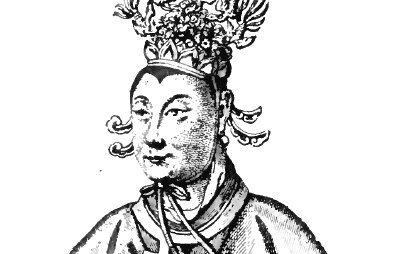<![CDATA[The tomb of a Chinese king has been found recently in the Xuyi County in Jiangsu, China. The huge mausoleum contained over 10,000 items made of fine metals and stones, including silver, bronze, gold, jade and lacquer. These goods were to prepare the king for the afterlife. The king that was so luxuriously honored in his death was Liu Fei, a Chinese king who ruled over the kingdom of Jiangdu. He died in the 26th year of his reign in 128 BC. Excavation began in 2009 on a large earthen mound that jutted out more than 492 feet. When digging began, archaeologists found that there were two long shafts leading to a burial chamber that measured 115 feet long and 85 feet wide. When the archaeologists entered into the burial chamber, they found that it was divided into even smaller chambers and corridors, they found a wealth of items inside the king's tomb, except the king himself. The coffin of the king was compromised and his body had been removed. Archaeologists believe that the treasures found in the tomb correlated to the way the king lived in his day. The burial chamber was huge, and it contained many items that even the average house could not hold. It had numerous weapons including knives, swords and crossbows, and more than 20 medium-sized chariot models. These weapons and chariot models were placed in pits. In one of the pits, there were five life-size wooden chariots that faced east-to-west. Four chariots had bronze and gold parts, while one chariot had bronze parts embedded with gold and silver. Another pit contained 50 model chariots with iron swords, depicting battle chariots. There was also an assortment of musical instruments found, such as zithers, chimes and nicely decorated tuning pegs. In another section of the chamber were lamps that were shaped like different animals such as geese and deer. A silver basin was also found with the inscription "the office of the Jiangdu Kingdom." To add to the wealth that was already found were more than 100,000 banliang coins, which were used extensively under China's first emperor. The production of these coins was ceased when the emperor died in 210 BC. There was even a kitchen found in the chamber, with food that was meant for the afterlife. Seashells, animal bones and fruit seeds were found, with containers such as cauldrons, tripods, steamers, cups, pitchers and wine vessels. Some of them were inscribed "culinary officer of the Jiangdu Kingdom." Beside the king's tomb was another tomb that is currently a mystery to the Chinese archaeologists, as they do not know to whom it belonged. Just like the king, the body of the person that was in this tomb was looted as well. They do know however that it belonged to someone important, as in it are numerous bronze, gold and silver objects, with 200 sets of jade artifacts. The study was conducted by a team from the Nanjing Museum and was published in the journal Chinese Archaeology.]]>
Ancient Chinese Mausoleum Found
